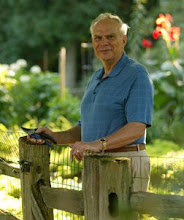The culture of the West has essentially moved from its base in Christian humanism through a period of irregilion and rebellion to that of secularism. The spirit of Christian humanism pertained well into the nineteenth century when it began to be challenged by leading authors. The rise of Darwinian thought during the later half of the century greatly augmented the challenge and issued in the outright rebellion voiced by such authors as A. E. Housman, Algernon Swinburne, Thomas Hardy and James Joyce. This gave rise to the secular spirit that--as we well know today--attempts to ignore or dismiss religion altogether, seeing it as held only by ignorant fanatics.
We see Conrad's attitude represented in his depiction of Kurtz and Kurtz's Intended. Kurtz is a figure larger than himself: he symbolizes complete man. He is presented as a "universal genius," a musician, a painter, a writer, and especially, an idealist and an orator. The strong voice that he is able to give to his mistaken idealism renders him a complete fraud. The power of his personality together with the desire for wealth and fame lead him to exercise complete power over the native Africans, and such power precipitated his fall into sensuality and complete moral disintegration. Assuming the role of a god, he became a devil.
Conrad is not consciously writing from a Christian point of view, but from a Christian standpoint one cannot but see in his depiction of Kurtz a warning for all Christian workers. The human self perennially offers the main obstacle to the successful Christian life. Conversion is effected initially by the self dying into life: Christian baptism symbolizes the dying into life without which no individual is Christian. The constant denying of self-will is the indispensable component of effective Christian service and spiritual growth. The esteem that is often extended to Christian workers can subtly issue in self-congratulation and inadvertent self-esteem. The indispensable antidote and correction is to maintain the mind of Christ, as outlined in Phillipians chapter 2. Christ advised, "he that would be great among you, let him serve."
Kurtz's dying cry, "The horror! The horror!" (144) poses the problem of interpretation. What is meant? Is he making a pronouncement on the nature of the wilderness, hence, the nature of creation itself? The text has repeatedly presented it in its primeval state as a dark expression of evil. Marlow comments that life is "that mysterious arrangement of merciless logic for a futile purpose" (144). Is this Kurtz's view? Or is he lamenting the great gulf in life between the ideal and actual? Marlow affirms that Kurtz's cry was a "moral victory" (146). How so? Perhaps in the sense that in dying Kurtz has attained to the clarity to view life as it really is, a clarity so few people achieve.
But is there not a Christian interpretation as well? We are told that in dying Kurtz achieved "that supreme moment of complete knowledge" (144). He can well be seen as catching a glimpse of the eternal damnation that is his destiny. His cry is rather like David's : "My heart is in anguish within me, the terrors of death have fallen upon me. Fear and trembling come upon me, and horror overwhelms me" (Psalm 55: 4, 5).
The ironic comment of the native boy who sticks his head in the door, "Mistah Kurtz--he dead." becomes the epitaph for one of the signature poems of the modern period, T. S. Eliot's "The Hollow Men." The poem begins: "We are the hollow men / We are the stuffed men / Leaning together / Headpiece filled with straw . . . . Those who have crossed / With direct eyes, to death's other Kingdom [i.e., the Christian saints, who have died triumphantly] / Remember us--if at all--not as lost / Violent souls, but only / As the hollow men / the stuffed men . . . ." Eliot, like C. S. Lewis, viewed modern man from the standpoint of a full and comprehensive knowledge of the history of Western Civilization, and he saw them immensely diminished in moral and spiritual capacity, a view that is precisely opposite to modern man's view of himself. We pride ourselves for our amazing "progress" and technological prowess. Interestingly, Marlow back in the "sepulchral city" of London sees people in a similar light (146).
Marlow, entrusted with Kurtz's papers, awkwardly makes distribution of them to relevant parties, and lastly makes a visit to Kurtz's Intended to return a packet of letters and her picture. In response to her rapturous idealizations of her fiance, Marlow embarrassingly makes ambiguous comments in a desperate attempt not to disillusion her by giving any indication as to the actual circumstances of Kurtz's career and death. When she asks for his dying words, Marlow mutters that he pronounced her name, and, dumbfounded by what he has said, quickly makes his departure. "I could not tell her. It would have been too dark--too dark altogether" (155).
Thus Marlow justifies his lie to himself. But is there a sense--from Conrad's point of view--in which "The horror, the horror" could be taken as referring to the Intended (the pun value aside, though some critics would have it so)? The thematic thrust of the entire novella is to expose all religious idealism as utter sham. In Conrad's terms, the illusion of all religion is itself a horror, a great delusion.
